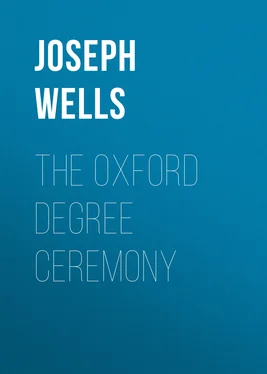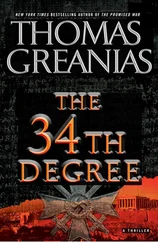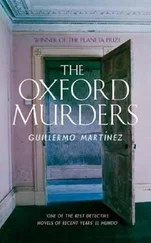Joseph Wells - The Oxford Degree Ceremony
Здесь есть возможность читать онлайн «Joseph Wells - The Oxford Degree Ceremony» — ознакомительный отрывок электронной книги совершенно бесплатно, а после прочтения отрывка купить полную версию. В некоторых случаях можно слушать аудио, скачать через торрент в формате fb2 и присутствует краткое содержание. Жанр: foreign_antique, foreign_edu, на английском языке. Описание произведения, (предисловие) а так же отзывы посетителей доступны на портале библиотеки ЛибКат.
- Название:The Oxford Degree Ceremony
- Автор:
- Жанр:
- Год:неизвестен
- ISBN:нет данных
- Рейтинг книги:5 / 5. Голосов: 1
-
Избранное:Добавить в избранное
- Отзывы:
-
Ваша оценка:
- 100
- 1
- 2
- 3
- 4
- 5
The Oxford Degree Ceremony: краткое содержание, описание и аннотация
Предлагаем к чтению аннотацию, описание, краткое содержание или предисловие (зависит от того, что написал сам автор книги «The Oxford Degree Ceremony»). Если вы не нашли необходимую информацию о книге — напишите в комментариях, мы постараемся отыскать её.
The Oxford Degree Ceremony — читать онлайн ознакомительный отрывок
Ниже представлен текст книги, разбитый по страницам. Система сохранения места последней прочитанной страницы, позволяет с удобством читать онлайн бесплатно книгу «The Oxford Degree Ceremony», без необходимости каждый раз заново искать на чём Вы остановились. Поставьте закладку, и сможете в любой момент перейти на страницу, на которой закончили чтение.
Интервал:
Закладка:
J. Wells
The Oxford Degree Ceremony
PREFACE
The object of this little book is to attempt to set forth the meaning of our forms and ceremonies, and to show how much of University history is involved in them. It naturally makes no pretensions to independent research; I have simply tried to make popular the results arrived at in Dr. Rashdall's great book on the Universities of the Middle Ages , and in the Rev. Andrew Clark's invaluable Register of the University of Oxford (published by the Oxford Historical Society). My obligations to these two books will be patent to all who know them; it has not, however, seemed necessary to give definite references either to these or to Anstey's Munimenta Academica (Rolls Series), which also has been constantly used.
I have tried as far as possible to introduce the language of the statutes, whether past or present; the forms actually used in the degree ceremony itself are given in Latin and translated; in other cases a rendering has usually been given, but sometimes the original has been retained, when the words were either technical or such as would be easily understood by all.
The illustrations, with which the Clarendon Press has furnished the book, are its most valuable part. Every Oxford man, who cares for the history of his University, will be glad to have the reproduction of the portrait of the fourteenth-century Chancellor and of the University seal.
I have to thank Dr. Rashdall and the Rev. Andrew Clark for most kindly reading through my chapters, and for several suggestions, and Professor Oman for special help in the Appendix on 'The University Staves'.
J.W.CHAPTER I
THE DEGREE CEREMONY
The streets of Oxford are seldom dull in term time, but a stranger who chances to pass through them between the hours of nine and ten on the morning of a degree day, will be struck and perhaps perplexed by their unwonted animation. He will find the quads of the great block of University buildings, which lie between the 'Broad' and the Radcliffe Square, alive with all sorts and conditions of Oxford men, arrayed in every variety of academic dress. Groups of undergraduates stand waiting, some in the short commoner's gown, others in the more dignified gown of the scholar, all wearing the dark coats and white ties usually associated with the 'Schools' and examinations, but with their faces free from the look of anxiety incident to those occasions. Here and there are knots of Bachelors of Arts, in their ampler gowns with fur-lined hoods, some only removed by a brief three years from their undergraduate days, others who have evidently allowed a much longer period to pass before returning to bring their academic career to its full and complete end. From every college comes the Dean in his Master's gown and hood, or if he be a Doctor, in the scarlet and grey of one of the new Doctorates, in the dignified scarlet and black of Divinity, or in the bold blending of scarlet and crimson which marks Medicine and Law. College servants, with their arms full of gowns and hoods, will be seen in the background, waiting to assist in the academic robing of their former masters, and to pocket the 'tips' which time-honoured custom prescribes.
Presently, when the hour of ten has struck, the procession of academic dignity may be seen approaching across the Quad, the Vice-Chancellor preceded by his staves as the symbol of authority, the Proctors in their velvet sleeves and miniver hoods, and the Registrar (or Secretary) of the University.
Already most of those concerned are waiting in the room where degrees are to be given: others still lingering outside follow the Vice-Chancellor and the Proctors, and the ceremony of conferring degrees begins.
Should our imaginary spectator wish to see the ceremony, he will have no difficulty in gaining admittance to the Sheldonian, even if he have delayed outside till the proceedings have commenced; but if the degrees are conferred in one of the smaller buildings, it is well to secure a seat beforehand, which can be done through any Master of Arts. The ceremony will well repay a visit, for it is picturesque, it should be dignified, it is sometimes amusing. But it is more than this; in the conferment of University Degrees are preserved formulae as old as the University itself, and a ritual which, if understood, is full of meaning as to the oldest University history. The formulae, it is true, are veiled in the obscurity of a learned language, and the ritual is often a mere survival, which at first sight may seem trivial and useless; but those who care for Oxford will wish that every syllable and every form that has come down to us from our ancient past should be retained and understood. It is to explain what is said and what is done on these occasions that this little book is written.
Notice of Degree Ceremony.
Degrees at Oxford are conferred on days appointed by the Vice-Chancellor, of which notice is now given at the beginning of every term, in the University Gazette ; the old form of giving notice, however, is still retained, in the tolling of the bell of St. Mary's for the hour preceding the ceremony (9 to 10 a.m.) 1 1 In 1619 a B.A. candidate from Gloucester Hall (now Worcester College), who failed to present himself for his 'grace', was excused 'because he had not been able to hear the bell owing to the remoteness of the region and the wind being against him'.
. The assembly at which degrees are conferred is the Ancient House of Congregation (p. 93 Конец ознакомительного фрагмента. Текст предоставлен ООО «ЛитРес». Прочитайте эту книгу целиком, купив полную легальную версию на ЛитРес. Безопасно оплатить книгу можно банковской картой Visa, MasterCard, Maestro, со счета мобильного телефона, с платежного терминала, в салоне МТС или Связной, через PayPal, WebMoney, Яндекс.Деньги, QIWI Кошелек, бонусными картами или другим удобным Вам способом.
). The old arrangement of the Laudian Statutes is still maintained, by which the proceedings commence with the entrance of the Vice-Chancellor and Proctors, while one of the Bedels 'proclaims in a quiet tone', 'Intretis in Congregationem, magistri, intretis.' The Vice-Chancellor, when he has formally taken his seat, declares the 'cause of this Congregation'. It will be noticed that both the Vice-Chancellor and the two Proctors, as representing the elements of authority in the University (as will be explained later), wear their caps all through the ceremony.
Other business beside Degree giving.
Degree giving, however, is sometimes preceded and delayed by the confirmation of the lists of examiners who have been 'duly nominated' by the committees appointed for this purpose; it is of course natural that the same body which gives the degree should appoint the examiners, on whose verdicts the degree now mainly depends. A less reasonable cause of delay is the fact that the 'Congregation' is sometimes preceded by a 'Convocation' for the dispatch of general business, as a rule (but not always) of a formal character; the two bodies, Convocation and Congregation, are usually made up of the same persons, and are the same in all but name; the change from one to the other is marked by the Vice-Chancellor's descending from his higher seat, with the words 'Dissolvimus hanc Convocationem; fiat Congregatio'.
The Registrar's Declaration.
The degree ceremony itself begins with the declaration on the part of the Registrar that the candidates for the degrees have duly received permissions ( gratiae ) from their Colleges to present themselves, and that their names have been approved by him 2 2 Till recently the whole list of candidates for all degrees was read by the Registrar, as well as by the Proctors afterwards when 'supplicating' for the graces of the various sets of candidates. Time is now economized by having the names read once only.
; he has already certified himself from the University Register that all necessary examinations have been passed, and has been informed officially that all fees have been paid. The names have been already posted outside the door of the House; it is said that this is done to enable a tradesman to find out when any of his young debtors is about to leave Oxford, so that he may protest, if he wish, against the degree. The posting, however, is natural for many reasons, and no such tradesman's protest has been known for years; nor is it easy to see how it could be made by any one not himself a member of the University.
Интервал:
Закладка:
Похожие книги на «The Oxford Degree Ceremony»
Представляем Вашему вниманию похожие книги на «The Oxford Degree Ceremony» списком для выбора. Мы отобрали схожую по названию и смыслу литературу в надежде предоставить читателям больше вариантов отыскать новые, интересные, ещё непрочитанные произведения.
Обсуждение, отзывы о книге «The Oxford Degree Ceremony» и просто собственные мнения читателей. Оставьте ваши комментарии, напишите, что Вы думаете о произведении, его смысле или главных героях. Укажите что конкретно понравилось, а что нет, и почему Вы так считаете.











